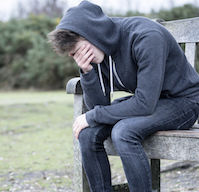Relationships
Mass School Shooting Averted by Parent Heeding Warning Signs
Father foils school massacre plot by turning in his daughter
Posted March 29, 2017

Residents of Thurmont, Maryland are likely feeling shocked yet relieved after finding out that a mass attack at a local high school was averted. An 18-year-old high school student, Nicole Cevario, allegedly planned to carry out a massacre on April 5, 2017, using a shotgun, ammunition and bomb-making materials including nails and fireworks, during which she also planned to die.
Why didn’t it happen? Nicole’s father reportedly alerted authorities after reading the plot in his daughter’s diary.
Many school shooting disasters have been prevented by actions of students, parents, and other adults, while others haven’t. How can we know when to be concerned?
Here are some things about a child that call for investigation into what is happening in the child’s life:
- Unstable or troubled emotional state, particularly persistent anger or depression
- Recurrent violent behavior with family or peers
- Being persistently bullied
- Substance use
- Preoccupation with violent media (games, TV, movies, Internet)
- Difficulty coping with life events, or
- Obvious change in mood, behavior, friends, or social interactions.

These are some of the warning signs that a child may harm him or herself or other people.
We don’t know what Nicole’s parents may have noticed about her life or behavior that could have been concerning, but we do know that they found her diary and read it. This act revealed her detailed plot and enabled them to save their daughter’s life and likely many others. Privacy of young people is limited by concerns about safety and well-being, so if Nicole’s parents were worried, they did the right thing by reading her diary and notifying authorities of their horrifying discovery.
In addition, studies of young mass shooters show that one or more of these warning signs are almost always present:
- At least one other person knew about the plot beforehand. Therefore, we need to openly discuss with students the need to report concerns about other students, provide venues for anonymous reporting, and praise students for reporting, because it saves lives.
- Talking about killing or otherwise harming themselves. Almost all young mass attackers end their lives as they know them, through suicide, suicide by cop, or long incarcerations.
- Communicating (in writing, online, or verbally) a detailed plan to attack a place or people.
- Possession of and/or preoccupation with weapons.
Brain development occurs until at least age 25, which means that youth and young adults aren’t equipped to make good decisions or control impulses or emotions well yet. Even seemingly happy young people may be troubled—access to a weapon can turn a bad day into a horrific one.
It’s hard enough for many of us adults to cope with today’s turbulent world, but young people especially need help to cope with disappointment, anger, and worries so they don’t resort to violence. They also need us to counter dangerous beliefs that harming people is the answer to problems, appropriate revenge, a way to show feelings, or a pathway to fame. There’s always a better way out of feeling hurt, trapped, or hopeless. We think young people need to hear this along with tools to bolster emotional health.
It’s tough growing up with all of today’s pressures and harmful exposures that fill childhood. Parents do themselves, their children, and all of us a tremendous service by trying to maintain close relationships so that kids willingly seek parental advice and support for problems. When these relationships aren’t possible, having just one other caring adult involved can make the difference between life and death.


